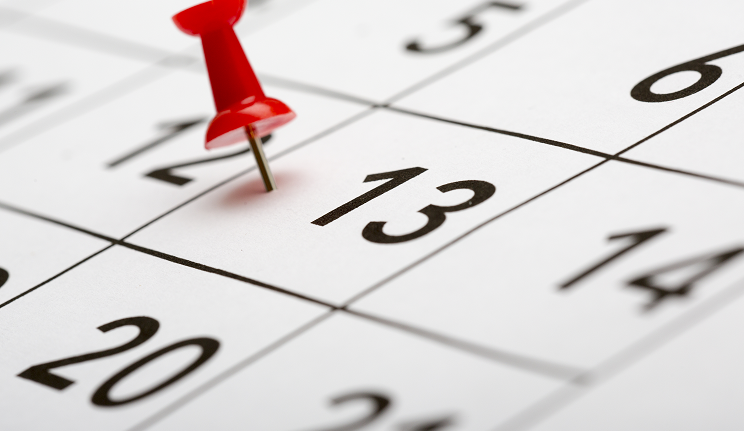Friday 13th and Casinos
100% Bonus up to £100 + 50 Free Spins
100% Bonus up to £100 + 50 Free Spins

Irish superstitions have been around for centuries. Whether it’s avoiding black cats or trying not to fall down in a graveyard, there are many precautions you can take to prevent bad luck. Regardless of wheth-er you’re superstitious, most people acknowledge Friday 13th as a day to be extra cautious – particularly those living in Ireland. People are more careful when walking down the stairs, handling hot substances, and even during their daily commute. Some people take the day so seriously that they refuse to leave the house. While it’s perfectly normal to be superstitious, becoming housebound takes things to a whole new level. Typically, those that treat the day with this level of caution are suffering from “Paraskevideka-triaphobia” – a phobia of Friday 13th.
But how does this unlucky day effect casinos? As a luck-based industry, it would make sense that busi-ness drops on Friday 13th. In this article, we explore Friday 13th and casinos in more detail.
Why is Friday 13th Unlucky?
Though most people acknowledge Friday the 13th as an unlucky day, it remains unclear where the super-stition started. Like most superstitions, though, there are a few popular theories about its origins.
It’s no secret that some horrible things have happened on this day in the past, so some people believe this is where the day gained its reputation. For instance, on the 13th of October 1307, hundreds of Knights Templar were killed in France. Another theory stems from the Bible. During the last supper, Judas was the thirteenth person present. The following day was a Friday, which saw the crucifixion of Jesus.
The superstition may also be based on how lucky the number 12 is. Regarded as a number of ‘complete-ness’, the number 12 is used in many aspects of life. For instance, there are 12 months per year, 12 hours per day, 12 hours per night, and 12 zodiac signs. With this in mind, it’s no surprise that the number 13 seems irregular in comparison.
Another theory is based on an ancient Norse myth. In the tale, twelve Gods were eating in the hall of Valhalla. During the meal, an uninvited God named Loki turned up. Before long, he managed to trick the God of Darkness into shooting the God of Joy. As Loki was the 13th guest, some people think of 13 as an unlucky number. On the other hand, the number 13 was regarded as fortunate by the ancient Egyptians. They believed that humans experienced 12 stages during their mortal life, and when these had been completed they could move into eternal after-life. This meant that afterlife was the 13th stage. As after-life was considered paradisial, the number 13 became a lucky number for some.
During the 19th century, a club was set up to help those suffering from Paraskevidekatriaphobia. Named the ‘Thirteenth Club’, they made it their mission to regularly partake in unlucky behaviour to prove that nothing bad would happen. Typically, the club would meet in a group of 13 and walk under ladders before sitting down to eat dinner with open umbrellas and salt spilt on the table. Before eating, nobody was al-lowed to throw the salt over their shoulder. To make things even more ‘unlucky’ the club always met up in room no. 13. Surprisingly, it is believed that nothing bad happened to the members.
How Does it Affect Casinos?
So, we’ve explored the theories behind Friday 13th, but how does it affect casinos? As the gambling trade is based purely on luck, it would be a fair assumption that trade would drop on this unlucky day. Interest-ing, though, most Irish casinos report that it doesn’t.
As Friday 13th always falls before the weekend, casinos naturally see an increase in business. With the majority of the population working Monday-Friday, many people head to their local casino on a Friday evening to unwind after a busy week. On the other hand, though, payday patterns can also have an ef-fect on casino business. With the 1st and the 28th of each month being popular paydays, many people have spent their disposable income by the 13th. Some casinos believe that this naturally makes their trade drop by Friday 13th.
When it comes to superstition, there seems to be an evenly balanced opinion on whether Friday 13th is unlucky or fortunate in terms of gambling. Most gamblers have their fair share of superstitions. Whether they consider it good luck to buy in with £50 notes instead of £20s or they make sure to blow the dice be-fore taking their turn, casinos see a wide range of superstitions. Interestingly, though, for every supersti-tion there is an opposing opinion; for instance, while some players consider £50 notes lucky, others con-sider them unlucky. This split in opinion appears to be the same on Friday 13th. Some players avoid casi-nos on the ‘unlucky’ day, while others flock to them.
In Summary
For the most part, Irish casinos do not lose business because of Friday 13th. While some gamblers choose not to test their luck on the 13th, they usually spend their money on other days instead. Some casinos actually report a rise in business on Friday 13th. One theory behind this is that many players head to a ca-sino on the 13th with the belief that much of their competition would have stayed at home. With fewer players in the establishment, there is a higher chance of pocketing the jackpot. As always, it’s important to consider your financial situation before stepping into a casino – whatever day of the year it is! If you’ve got some spare cash, though, gambling on Friday the 13th may work in your favour.



